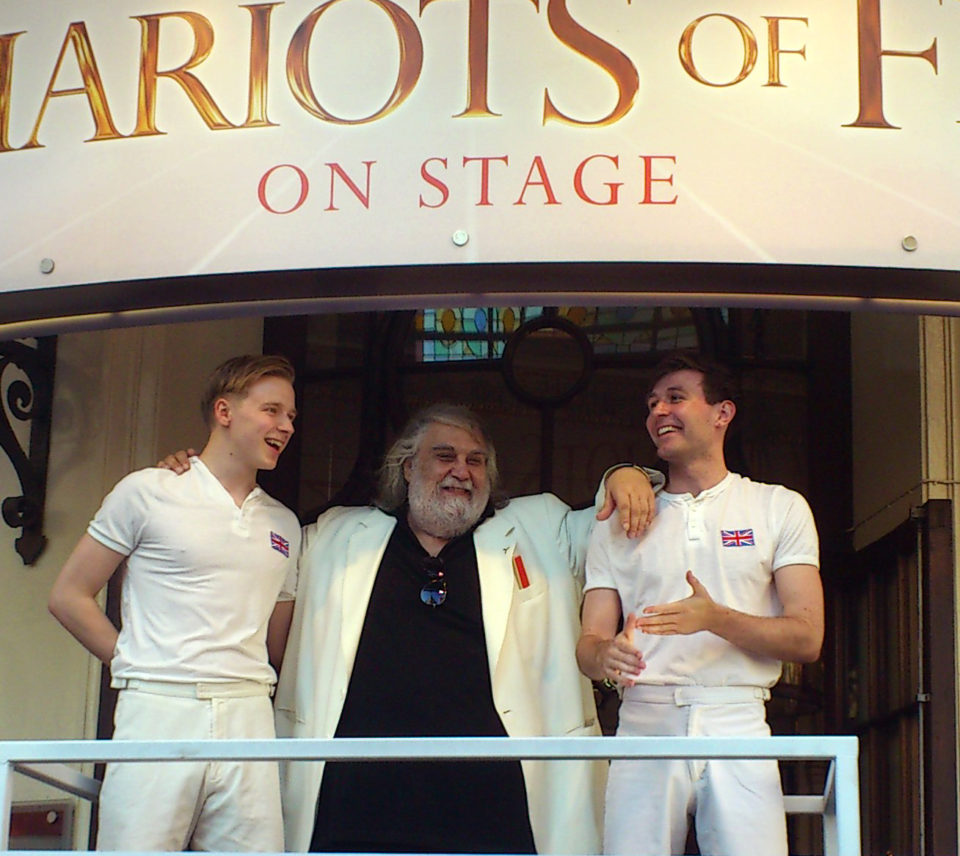#RSFlashback: Vangelis Hit Number One with ‘Chariots of Fire’ 40 Years Ago
…And we haven’t stopped running in slow motion since
Let’s get this out of the way – “Titles” aka the theme song to the Oscar-winning film Chariots of Fire might possibly be one of the most well-recognized instrumental compositions of the last 40 years. Covered by countless performers and across numerous television programs and sporting events, the composition by Greek artist Vangelis became one of the most commercially successful movie themes of all time.
Forty years ago this week, after 22 weeks climbing the Billboard Hot 100, the track (which is also referred to by the movie’s name) finally hit #1, thanks to the added boost of winning the Best Picture and Best Original Score Oscars just a few weeks prior. While it only stayed at the top for one week, the song managed to house a lengthy run not just in America but across Europe, Australia, Japan and beyond.
The composition was meant to evoke the triumphant emotions carried by the film’s two protagonists, one who runs in the name of God and the other to overcome prejudice. The film’s placement of the song with the slow-motion sequences became perhaps its most iconic part, something that would then be used for decades as the go-to instrumental choice for parodies in films, television, sports and commercials alike.
The music was so inspiring that Steve Jobs used the theme while introducing the world to the first Macintosh in 1984. It became somewhat of a de-facto choice for the Olympics (makes sense given the film was about the 1924 Olympics). BBC opted to use the song for both the 1984 and 1988 Summer Olympics as its coverage theme music. It would come as no surprise then that it became the key song for the 2012 Summer Olympics in London too (featuring a fantastic gag where Rowan Atkinson revived his Mr. Bean character and played the iconic song).
Over the years a great number of covers, both instrumental and with vocals, released to varying success. Melissa Manchester’s version, “Race to the End,” came out first. While never officially released as a single, it opened up the floodgates for countless artists to then take the track and make it their own, in particular creating a melody that goes along with the haunting and unforgettable piano part.
Other vocal versions included those by Jane Olivor and Demis Roussos, while even Bollywood took note and music director Rajesh Roshan literally lifted the entire piano melody for his seductive track from the Rekha-led blockbuster, Khoon Bhari Maang, in 1998. “Main Teri Hoon Jaanam” was sung by Sadhana Sargam and picturized on Sonu Walia and Kabir Bedi in the film. The soundtrack was a huge success and unsurprisingly, no credit or acknowledgement was given to Vangelis for this direct lift.
There have been a great number of other instrumental versions of the song that have released over the years in various genres and styles. From a jazzy rendition by The Bad Plus to the elevator/soft piano version by Richard Clayderman to the orchestral styling by John Williams and The Boston Pops, “Chariots of Fire” has truly found a place in modern pop-culture history, and no matter what you listen to or watch, you’ve heard that melody and you know what it means.
The 1980s remain the final decade where instrumental themes managed to cross over and become big Top 40 hits. In fact, after “Chariots of Fire,” in the years that followed both Harold Faltermeyer and Jan Hammer scored global smashes with “Axel F” and ‘Miami Vice Theme” respectively.
By the 1990s, the only theme to score on the charts was the “Theme from Mission: Impossible” by Adam Clayton and Larry Mullen of U2. To date, it’s the last instrumental from a soundtrack to enter the Billboard Hot 100.
Of course, there’s been some success with non-film instrumentals, with Baauer’s “Harlem Shake” being the last such composition to peak at #1 on the charts in 2013.
As far as “Chariots of Fire” goes, Vangelis created a musical masterpiece that has gone on to become one of the most recognized melodies of modern times. While he himself never replicated the same level of success that this theme enjoyed (though some would argue his score for 1982’s Blade Runner was equally mesmerizing), Vangelis remains the most successful Greek artist and the only one still to have reached #1.
There’s no doubt that the composition will continue to age gracefully. The duo of 2 Cellos recently took on the classic and once again proved that the composition can keep us running in slow motion for eternity. Of course, it’s up to us to either play it straight or go for the laughs. Either way, Vangelis is the real winner here, running all the way to the bank thanks to 40 years of residuals that keep going… no matter what.








